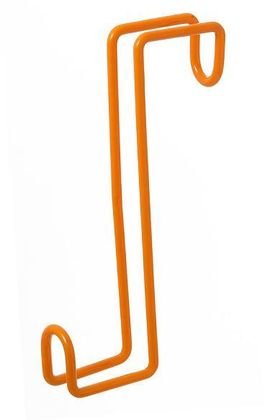Jerry_NJ
Petty Officer 1st Class
- Joined
- Aug 23, 2010
- Messages
- 250
I purchased a used 14' boat and trailer. It has a 9.9 HP Yamaha outboard on the back (circa 1995) and has decking and other heavy items inside. The boat is an aluminum and made by Discovery (an offshoot of Grumman I believe - Discovery has been out of business for several years at this point). The boat is a V hull, and rigged in a "Bass Boat" configuration with decking/carpeting and pedestal seats. The boat is very similar to a 14' Grumman Profisherman I have owned since about 1986.. and which was badly damaged by the storm that hit NJ last October.
The old Gruman has a hitch weight that I can handle manually to swing it around and up on my yard tractor or my truck for moving/towing. The Discovery is basically too heavy at the hitch for my old back to handle. I'll guess it is a bit over 100 pounds, I'd like to reduce it to about 60 pounds at least when being moved around my property - the heavier weight is fine when connected to my Chevy Colorado Pickup which as a 2" receiver hitch set up.
I assume putting more weight in the stern will lower the hitch weight. Meassuring I find the stern, from which the Yamaha hangs, is about 3' behind the trailer wheels. The boat thus has about 11' of its length and associated weight ahead of the wheels/axle of the trailer. Of course the trailer itself has another 4 or 5 feet of sticking out in front of the bow to provided for connecting to the trailer hitch. Still, the weights I am working against in lifting the hitch end is the weight of the boat and contents distributed fore and aft of the trailer axle (a single axle).
I know the simple mechanics of a lever and realize that for my trailer weight I put at the stern, let's just say at 3' behind the axle will change the force at the front of the boat to offset by the ratio of 3 divided by 11 + tong or approximate 3/15. or 1:5. I believe this says to reduce the tong/hitch weight by 40 pounds I have to add 5 times that amount behind the axle, or 200 pounds. Sound about right?
I have teo smaller deep cycle batteries, each weights about 40 pounds so if I put those two batteries as close as I can to the stern and find anoter 100 pounds to put back there I should see/feel a 40 lighter load when man handling the tong of the trailer, right?
Am I missing something here, or is there another approach that is simpler and easier?
When moving the boart around on the property I like to use my Garden Tractor and its hitch is so low I have to rotate the hitch jack to bet the trailer hitch on to the ball. This is a chore in itself, and with a hitch weight in the neighborhood of 100 pounds it is getting to be too much. Maybe I'm getting too old for this stuff anyway.
The old Gruman has a hitch weight that I can handle manually to swing it around and up on my yard tractor or my truck for moving/towing. The Discovery is basically too heavy at the hitch for my old back to handle. I'll guess it is a bit over 100 pounds, I'd like to reduce it to about 60 pounds at least when being moved around my property - the heavier weight is fine when connected to my Chevy Colorado Pickup which as a 2" receiver hitch set up.
I assume putting more weight in the stern will lower the hitch weight. Meassuring I find the stern, from which the Yamaha hangs, is about 3' behind the trailer wheels. The boat thus has about 11' of its length and associated weight ahead of the wheels/axle of the trailer. Of course the trailer itself has another 4 or 5 feet of sticking out in front of the bow to provided for connecting to the trailer hitch. Still, the weights I am working against in lifting the hitch end is the weight of the boat and contents distributed fore and aft of the trailer axle (a single axle).
I know the simple mechanics of a lever and realize that for my trailer weight I put at the stern, let's just say at 3' behind the axle will change the force at the front of the boat to offset by the ratio of 3 divided by 11 + tong or approximate 3/15. or 1:5. I believe this says to reduce the tong/hitch weight by 40 pounds I have to add 5 times that amount behind the axle, or 200 pounds. Sound about right?
I have teo smaller deep cycle batteries, each weights about 40 pounds so if I put those two batteries as close as I can to the stern and find anoter 100 pounds to put back there I should see/feel a 40 lighter load when man handling the tong of the trailer, right?
Am I missing something here, or is there another approach that is simpler and easier?
When moving the boart around on the property I like to use my Garden Tractor and its hitch is so low I have to rotate the hitch jack to bet the trailer hitch on to the ball. This is a chore in itself, and with a hitch weight in the neighborhood of 100 pounds it is getting to be too much. Maybe I'm getting too old for this stuff anyway.




















